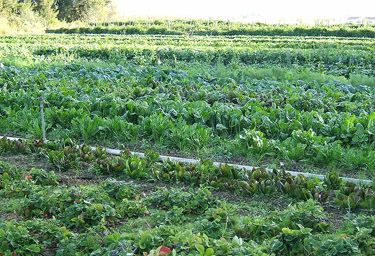 Rob Goldstein writes in Conservation Maven:
Rob Goldstein writes in Conservation Maven:
A new study finds that organic farming promotes biodiversity compared to conventional agricultural practices. While past research has found similar results, this particular study is groundbreaking in that it detected ecological benefits from organic farming at both a local and a landscape level.It’s always good to see research validate what we see on the ground (pun intended).Researchers looked at the uncultivated, semi-natural borders between organic and conventional agricultural fields in Sweden. They found that the borders between organic fields had significantly higher plant species richness and abundance. The researchers hypothesize that this is likely due, at least in part, to the unintentional impact that herbicides can have on non-target species.
This is good news and not just for plants. Increases in plant species diversity likely trickle up the food chain benefiting the insects that eat plants (and the birds that eat insects).
